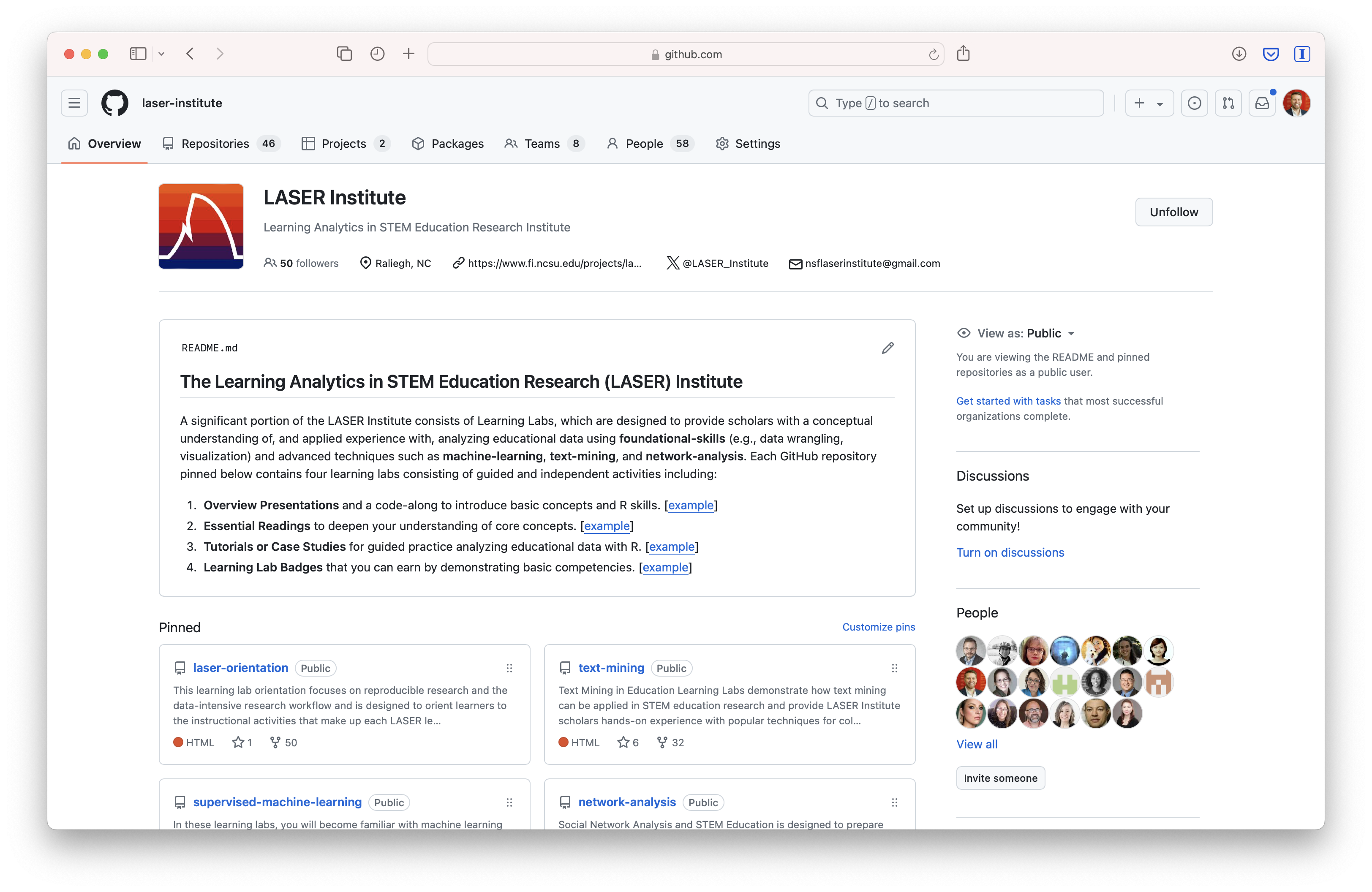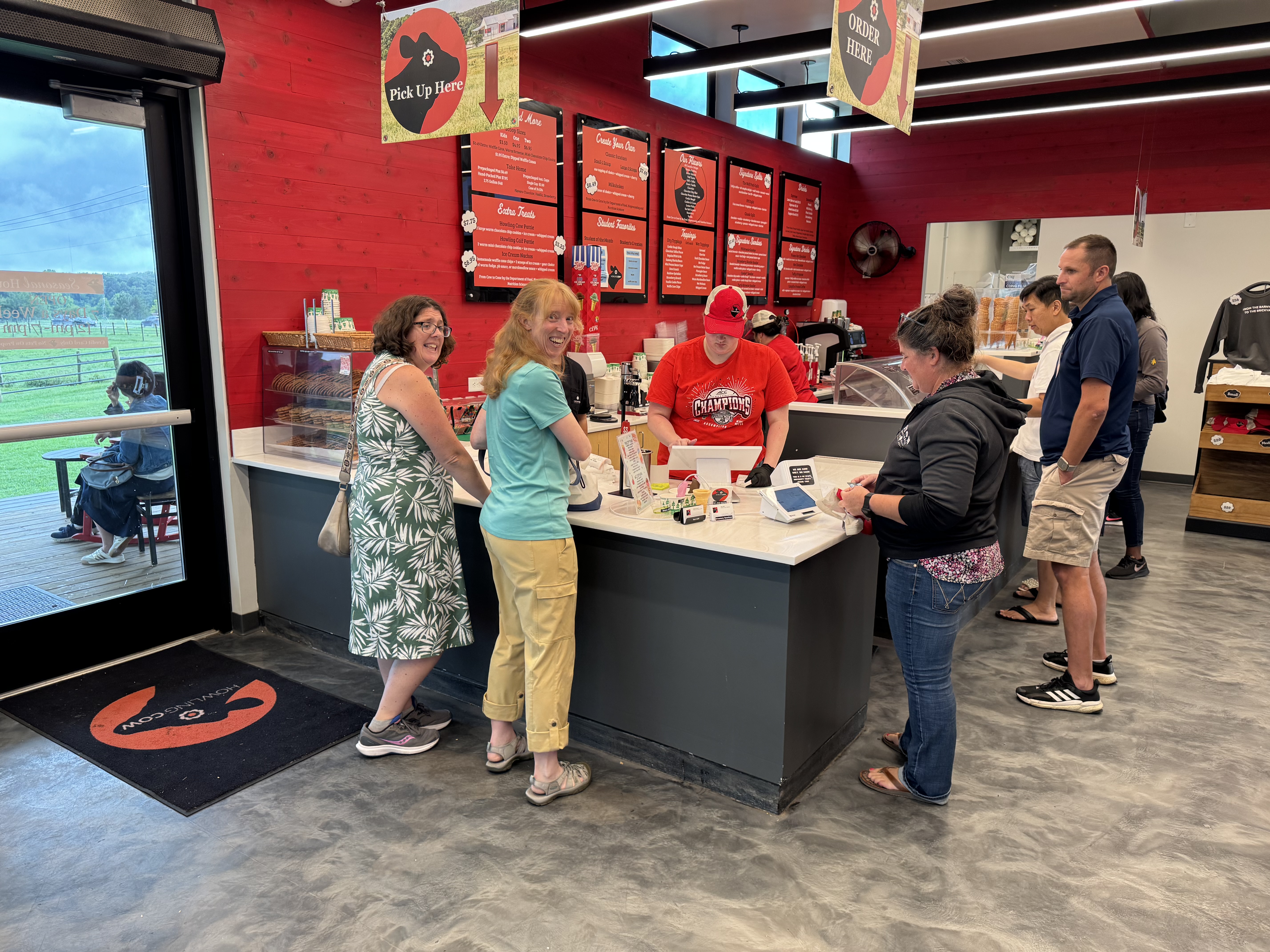Program Components
The LASER Institute is a year-long blended training program consisting of two core components:
Summer Workshop. Hosted at the Friday Institute (FI) in Raleigh, NC, the in-person Summer Institute is an intensive 5-day program consisting of tutorials, learning labs, guest speakers, community building activities, and instructional planning sessions.
Online Community. LASER Institute will leverage the FI’s online Professional Learning and Collaboration Environment (PLACE), as well as other communication and collaboration platforms (e.g., Zoom, Slack, GitHub), to cultivate an online community and provide ongoing support throughout the year.
Summer Workshop
LASER BEAM participants begin their program with an intensive 5-day summer training program hosted by the Friday Institute for Educational Innovation at North Carolina State University. The Summer Workshop takes place in July and is taught by NC State and Penn faculty and and includes invited presentations from Advisory Board members, as well as pre-workshop preparation (e.g., introductions and needs assessment) for participants beginning earlier that spring.
To attend to the needs of STEM education faculty and researchers with varying degrees of expertise in LA, the Summer Institute provide both a beginner track and an advanced track to support faculty development, with approximately half of the participants in each track. The Summer Institute schedule outlined below provides an overview of the sequence of activities currently planned, recognizing that some adjustments be necessary based on the needs assessment and specific modules participants are interested in teaching and/or learning from. Each of these activities is described in more detail below.
Pre-Institute Preparation
As part of the application process, participants complete a needs assessment to identify their teaching interests, experience with software packages, and skills and knowledge in relation to LA and advanced methods. This assessment be used to identify the appropriate track for their Summer Institute experience and help guide the content, structure and sequence of their 5-day professional development. Participants are also provided a LASER Institute Welcome Packet provided details about the program along with a pre-institute checklist to help the prepare for the institute. For example, participants on the beginner track are required to engage in pre-institute tutorials beginning in May and which must be completed prior to the workshop to demonstrate their preparation and commitment to LASER BEAM. Finally, all participants engage in an initial community building activity designed to familiarize participants with the social platform that be used throughout LASER BEAM as part of the Online Community and provide them with an opportunity to get to know each other prior to the Summer Institute.
Workshop Schedule
| EST | Monday | Tuesday | Wednesday | Thursday | Friday |
| 9:00 - 9:30 | LASER Welcome | Community Building | Community Building | Community Building | Community Building |
| 9:40 - 11:00 | LASER Orientation | Module Session 1 | Module Session 2 | Module Session 3 | Module Session 4 |
| 11:15 - 12:30 | Orientation Continued | Module Session | Module Session | Module Session | Module Session |
| 1:30 - 2:10 | Guest Speaker | Guest Speaker | Guest Speaker | Guest Speaker | Guest Speaker |
| 2:15 - 3:00 | Module Intro | Module Session | Module Session | Module Session | LASER Closing |
| 3:00 - 3:45 | Pedagogy Session | Pedagogy Session | Pedagogy Session | Pedagogy Session | Evaluation |
| 4:00 - 5:00 | Design Session | Design Session | Design Session | Design Session | Early Exit |
Community Building
Community building activities are critical in supporting and affirming sustained participation in LA and data science initiatives, particularly for novice learners and scholars from underrepresented groups Arif et al. (2021). Consequently, LASER BEAM incorporate identity-affirming activities each day of the workshop to help participants learn more about each other and create a sense of community Booth and Kellogg (2015). By sharing their backgrounds, interests, and experiences, participants identify commonalities and differences. This create a space for participants to learn from each other and build on each other’s strengths.
Module Sessions
Sessions focused on learning from LASER curriculum modules are conducted in small groups and differentiated for participants in the beginner and the advanced track based upon the needs assessment administered prior to the Summer Institute. These sessions focus on the instructional materials from which participants both learn from and use to train learners at their home institutions. Participants in the beginner track focus on 4 introductory modules to develop their foundational knowledge and skills (see Section 2c) necessary for more advanced methods. Advanced track participants engage in 4 module sessions focused on more advanced topics such as text classification and deep knowledge tracing. Sessions be facilitated by members of the project team, who model instructional best practices for use of these materials and participants in both tracks work through select module activities just as would be expected from the students and faculty they plan to teach. Additionally, module sessions be offered in an online format through workshops in the fall and spring (see Online Community section). This allow the project team to both address topics not covered during the summer institute and to model instructional delivery in a purely online context.
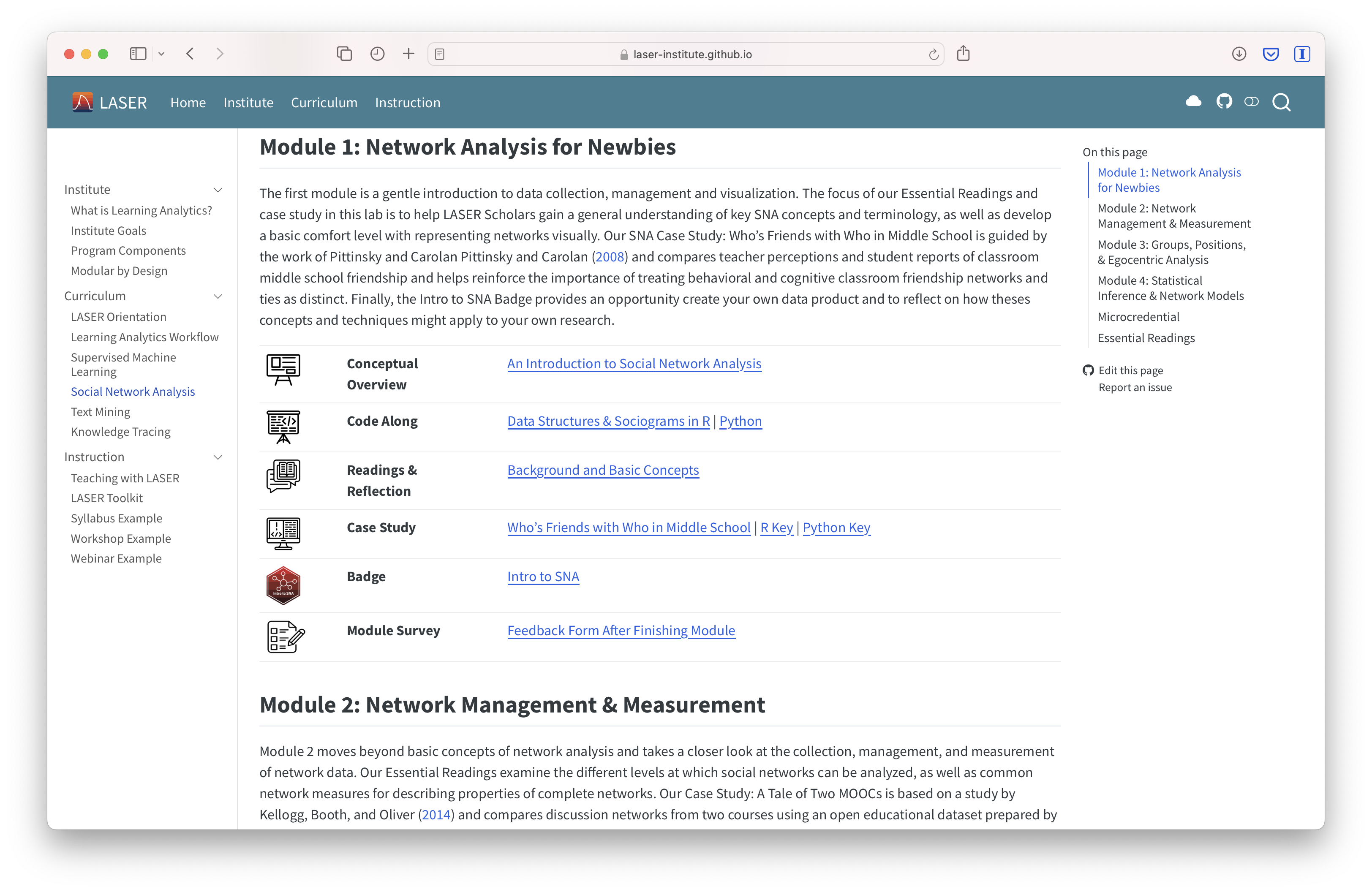
Guest Speakers
These sessions draw upon the backgrounds and expertise of our Advisory Board members and other invited guests who have taught courses, workshops, and training events focused on LA and related methods. Sessions reinforce topics introduced in our module and pedagogy sessions, and help participants envision how LASER BEAM curriculum materials and activities might be adapted to fit their own contexts and institutional programs.
Pedagogy Sessions
Participants in both the beginner and advanced tracks engage in whole group sessions to support them in adapting materials for their own instructional programs. Sessions focus on a range of topics, from understanding the design principles behind the LASER BEAM curriculum to setting up the infrastructure necessary for learners to fully participate in module activities. Pedagogy sessions throughout the week focus on the nuts and bolts of teaching the curriculum, including topics such as tools and approaches for facilitating in-person and online discussion, assessment and grading of assignments, and logistics for instructional delivery. For example, on Day 1 (Monday) participants are introduced to the LASER Toolkit, a powerful set of data science and instructional tools that can be accessed through an internet browser and used for assigning, supporting, and assessing instructional activities such as the interactive coding case studies and tutorials highlighted in Section 2c.
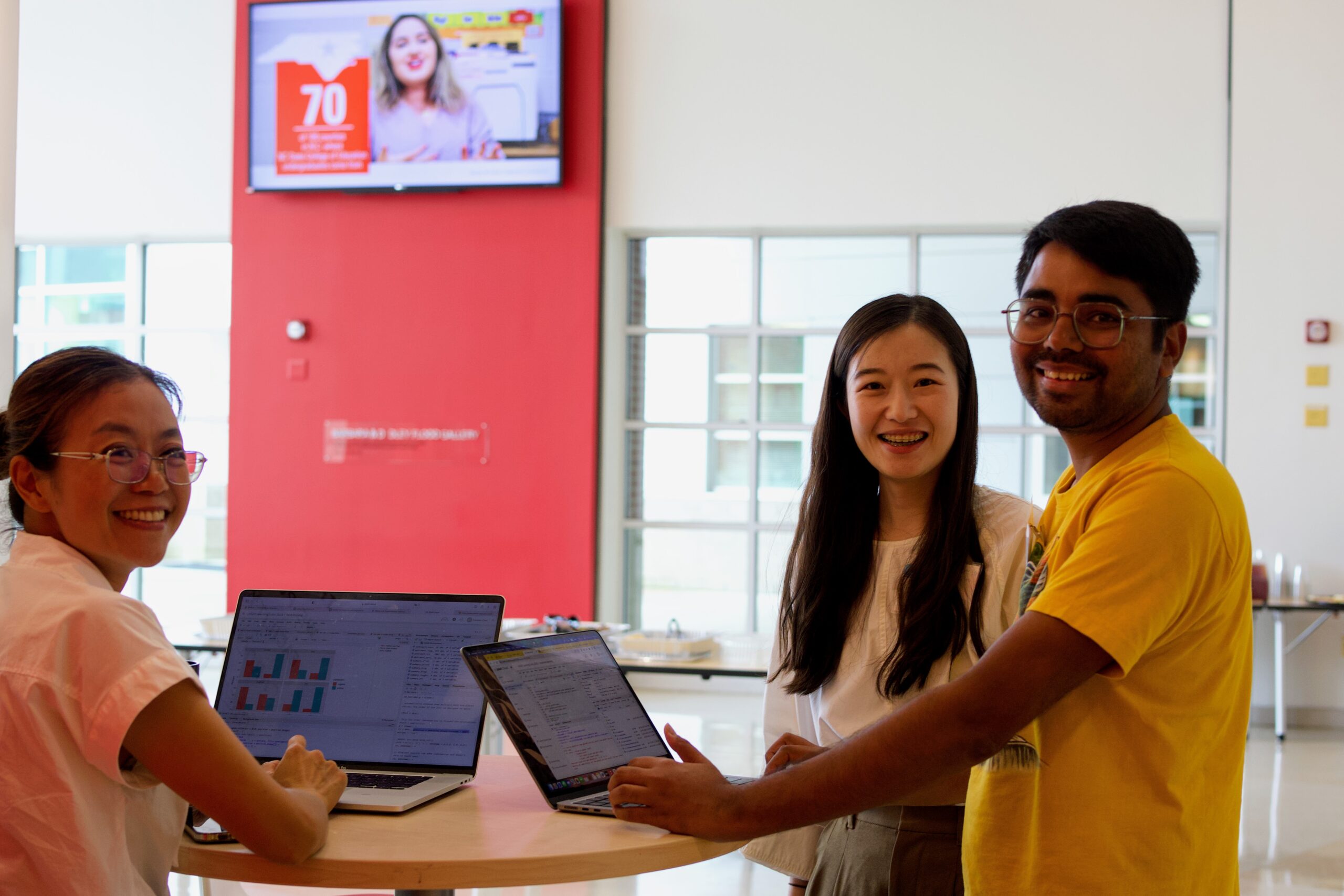
Design Sessions
Each day end with small group activities to assist participants in designing a customized instructional plan at their home institutions, where they consider how to incorporate curriculum resources into their own contexts. The project team collaborate with participants to choose relevant modules and activities, effective teaching methods (pedagogy), and suitable technology from our training resources that meet the needs of their learners. The team also work with participants in aligning the chosen LA topics, pedagogy, and technology with the learners’ needs to ensure the modules are tailored to address the unique needs and preferences of their learners.
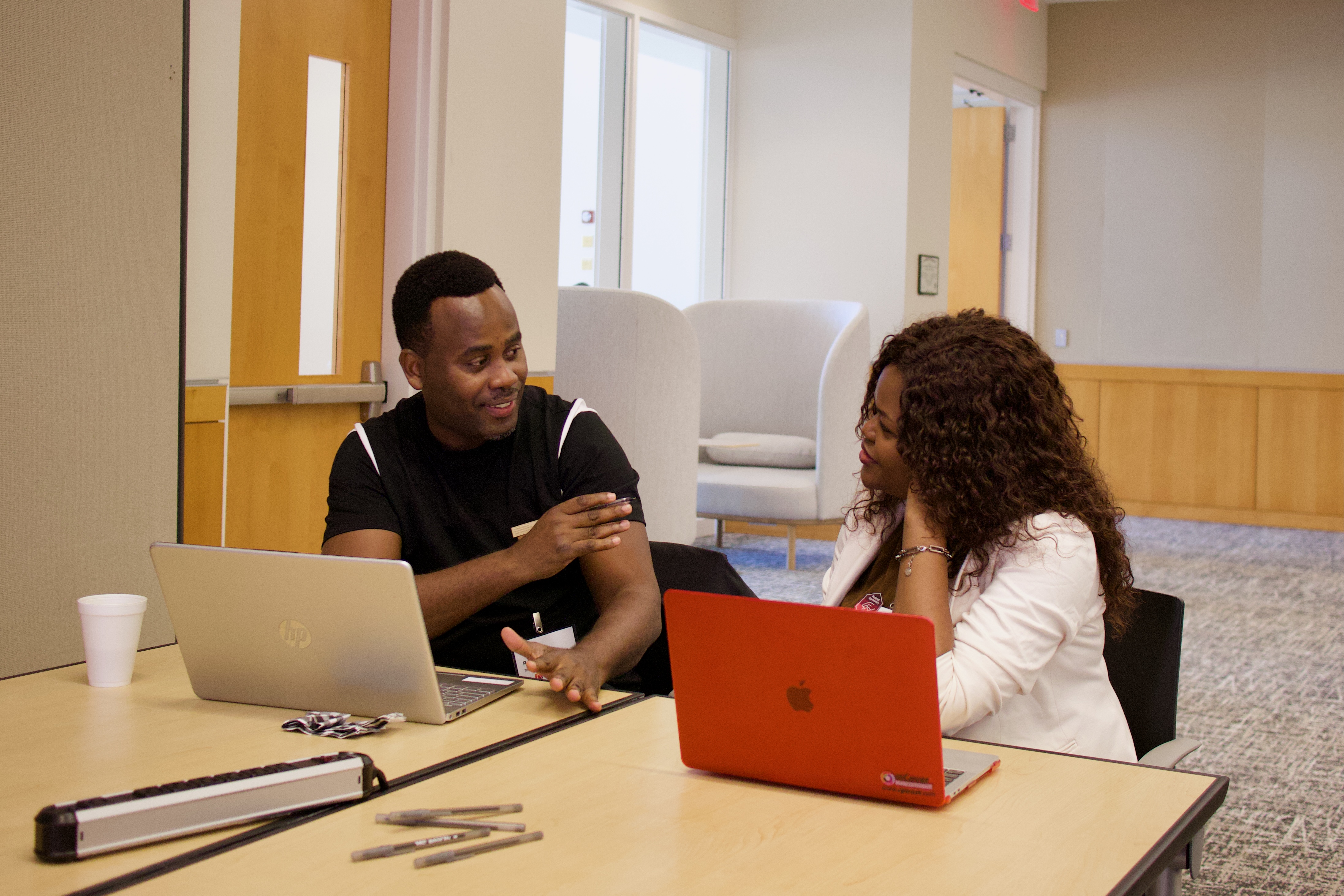
Fall Online Community
Ongoing support is provided to participants during the academic year to continue their professional learning and ensure they can successfully carry out instructional plans at their home institutions. The project team provides a range of activities designed to support participants and inform curriculum refinement throughout the year. These following are guided by findings from our prior research found to be strongly associated with successful online communities:
Monthly Check-Ins
Throughout fall and spring, the project team will facilitate formal monthly check-ins with participants on progress made towards implementing instructional plans developed duringthe Summer Workshop. The check-ins will also be used to gather feedback on curricular modules used by instructors. Guest speakers from our advisory board and other invited guests will also lead sessions on LA topics during check-ins. These sessions will be informed by the community, as well as more specialized topics in advanced methods.
Virtual Module Sessions
These session are offered several times each month so participants can learn about research methods they were unable to experience during the Summer Institute, as well to model instructional use of the modules in a fully online context. The workshops are led by members of the project team as well as by past LASER Scholars.
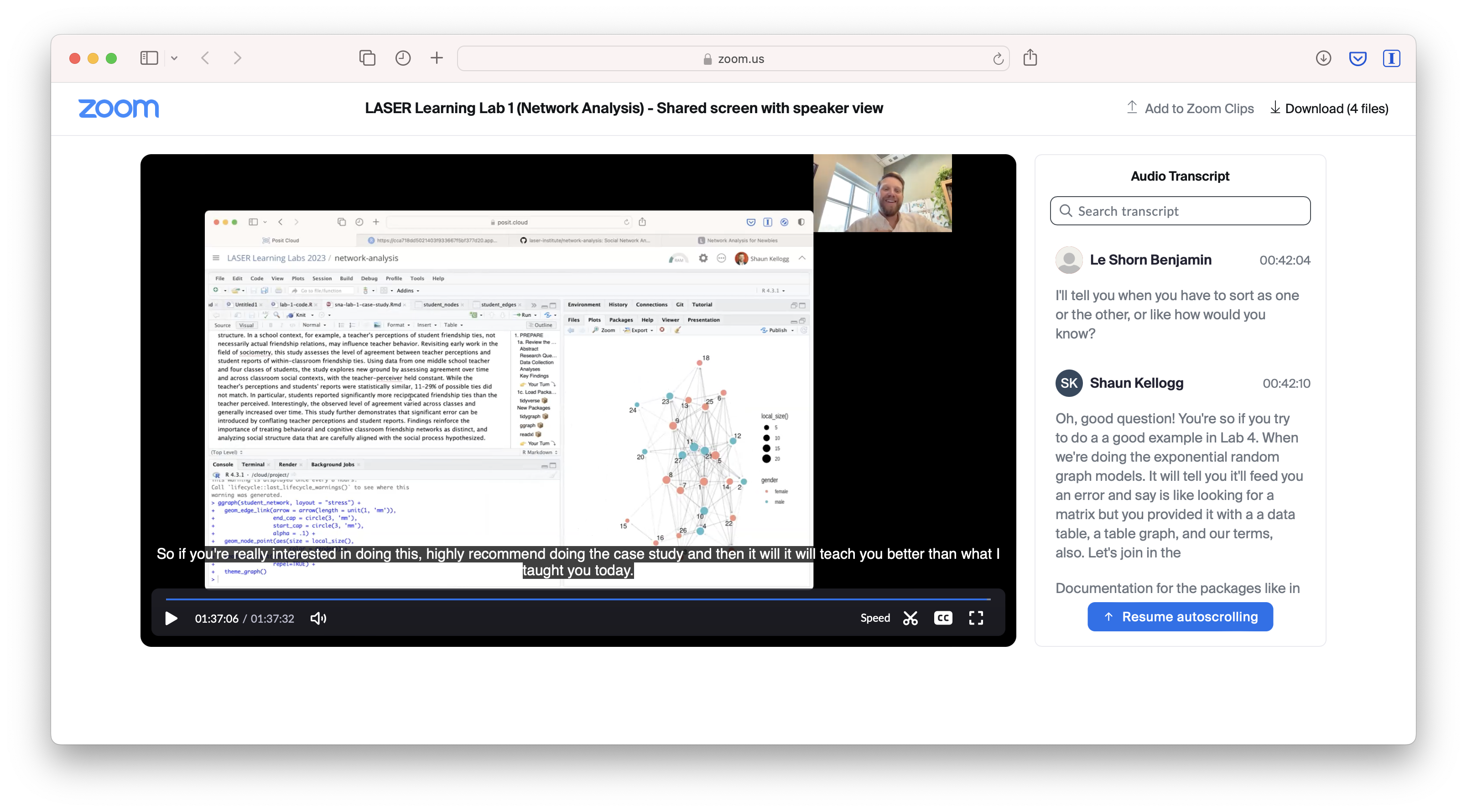
Asynchronous Activities
Facilitated discussion channels and informal Q&As are hosted on our Slack workspace, which includes both current and past participants from prior LASER Institute cohorts. Discussions focus on shared problems of practice such as adapting instructional modules to local contexts or working with students who have limited programming experience, as well as topics related to module content such as R packages, conceptual overviews, and essential readings.
Resource Repositories
A key deliverable of this grant is a freely available website that houses all the curriculum materials needed to teach, and learn from, the LASER curriculum. These materials consist of both project team and member-generated content hosted on GitHub and this website. These websites include materials for each module as well as supporting materials for instructors such as pedagogical tips, information on computing infrastructure, technology stack, and logistics for set up.
